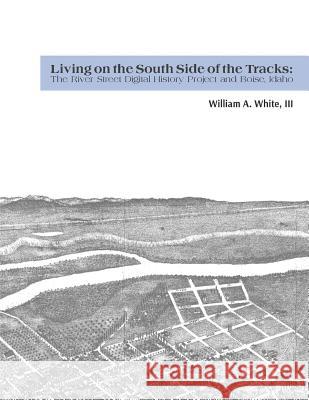Living on the South Side of the Tracks: The River Street Digital History Project and Boise, Idaho » książka
Living on the South Side of the Tracks: The River Street Digital History Project and Boise, Idaho
ISBN-13: 9780692701898 / Angielski / Miękka / 2016 / 76 str.
Race relations remains a central issue in American politics, economics, and culture. Interactions between African Americans and Euroamericans has been a focal point of historical archaeology for the last 30 years. The River Street Digital History Project is centered on the River Street Neighborhood, which was the historical home for most of the non-white population of Boise. This research will focus on two principal questions: 1) What role did race play in the lives of River Street Neighborhood residents? 2) How did the racialization of African Americans by Euroamericans effect the creation of whiteness as a racial construct? The River Street Digital History project centers on the creation of a website designed to disseminate digital copies of existing archival data, short segments of newly collected oral history interviews, and photographs from private collections. In addition to providing a useful resource for Boiseans, historians interested in race relations in the United States, and others, this digital history project is also a vehicle for collecting information that can be used by other researchers and the descendant community. As is the story with other multi-ethnic enclaves, the River Street Neighborhood was born from the pervasive discrimination that existed throughout Idaho and the American West. Stories told by neighborhood residents, both black and white, reveal a place where people found a way to co-exist with each other despite the garish racial and ethnic categories that dictated behavior within the surrounding community. It is this story of co-existence, cooperation, and perseverance that is at the heart of what it means to be a Boisean. Telling that story is the goal of this project. In the process, the digital history project will help fill a large gap in the history of race relations in Idaho.











